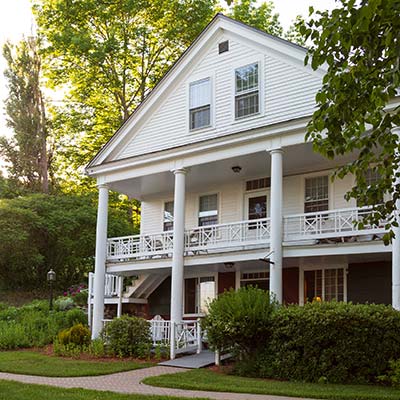by Rick Newman of Commercial Capital Network
Re-financing a B&B/Inn… Contrary to the media’s coverage on the financial markets and banking, mortgage financing is available for bed and breakfast/inns, where the business tax returns show sufficient cash flow to service the debt necessary to refinance/re-organize the innkeeper’s current debt.
The debt service on a commercial loan must be serviced by the income generated from the property only; income from other sources such as employment outside the inn cannot be used by the Loan Analyst to offset losses in the operating income from the inn. The Loan to Value (LTV) is established based on the actual “appraised value” as determined by an appraiser who is approved by the lender. The actual loan amount will be determined by the Loan Analyst/Underwriter, based on the historical record of income and deductions from the tax returns not the P&L’s. Generally speaking, the only add backs to the bottom line on the business tax returns are: Officer’s Salaries, Mortgage P&I, Depreciation, Rent, and One Time/Non-Re-occurring Capital Improvements.
A purchase transaction is underwritten in the same way as a refinance when it comes to the cash flow of the property; however what can be an issue in these times that the buyer’s down payment must be sufficient to cover the difference between the Loan to Value (LTV) and the sale price or appraised value whichever is greater. The losses perspective buyers have recently experienced in the stock market, their 401k/IRA’s and or equity in their homes, equates to a reduction in cash/equity they have available for a down payment, this reduction in purchasing power will necessitate seller financing or a shift to less expensive Bed & Breakfast/Inn.
Tax Returns are everything…. It is all too common to the industry that Innkeepers will run every expense they can through the business to reduce their taxable income, this practice may work from a tax perspective but can make financing the inn these days extremely difficult or even impossible
P&L Statements may be used by a perspective buyer and his/her advisors but lenders use tax returns when underwriting a loan request; P&L’s are only used by the Underwriter to cover the Year to Date (YTD) as the return has not been filed.
Residential loans for bed and breakfast properties…. Income or mixed use properties whether zoned residential or residential with a “Special Use Permit” are considered commercial because they have a commercial use and they generate income. Most bank and non-bank lenders sell residential loans on the secondary market, since an operating bed & breakfast/inn does not conform to the restrictions imposed in the secondary market the loan does not conform to the residential loan requirements. The other factor which disqualifies most buyers from qualifying for a residential loan is that income from the inn cannot be used to qualify for the loan, the buyers income from other sources must be sufficient without considering the income generated by the business.
2009 – May not be much better….
Innkeepers wishing to refinance or sell their inn in 2009 may want to take the opportunity to re-visit their tax strategy for the preparation of their 2008 tax returns. What lender in this market will finance an inn that loses money, the short answer… not many and probably none. What buyer wants to risk $3,500 to $5,000 on an appraisal valuing a property that will likely under-appraise relative to the seller’s expectation of value or purchase a property that shows losses year after year in spite of personal representations made by the owner to the contrary, the answer… a dreamer, a bottom feeder or a qualified turn-around expert?
Aspiring Innkeepers who have their hearts set on acquiring that “Fixer-Upper” or an inn that has been falling short in the income department should think twice before spending time and money on the due diligence process unless you have the following going for you:
1. A seller who realizes that an under-performing business is worth less than a profitable one and has priced it accordingly.
2. The seller is will and able to hold financing for any shortfall between the appraised value, Loan to Value, and your down payment
3. You will need 30% to 40% in down payment and cash reserves instead of the customary 15% to 20% down on a property with a good financial history
4. Your resume must either contain direct hospitality experience or transferable skill sets and qualifications
A Fresh Start for 2009 is what the industry needs. From an accounting prospective, what we need is to change the mindset from the “Mom & Pop” or “Lifestyle” approach to running the business and letting the business strut its stuff. Help Realtors establish a reality based asking price; help appraisers determine values on an income approach, and give lenders every reason to say YES by supplying the ammunition they need to successfully underwrite a loan request on a business that shows it can repay the debt.
Step 1 Use the PAII recommended Chart of Accounts in the New Year, as the Industry desperately needs standardize accounting.
Step 2 Organize business tax returns knowing how a lender underwrites a loan request. Again, the only add-backs to the bottom line of a tax return are: Officer’s Salaries, Mortgage P&I, Depreciation, Rent, and Non-Re-occurring Major Capital Improvements that increase revenue and add to the value of the real estate.





